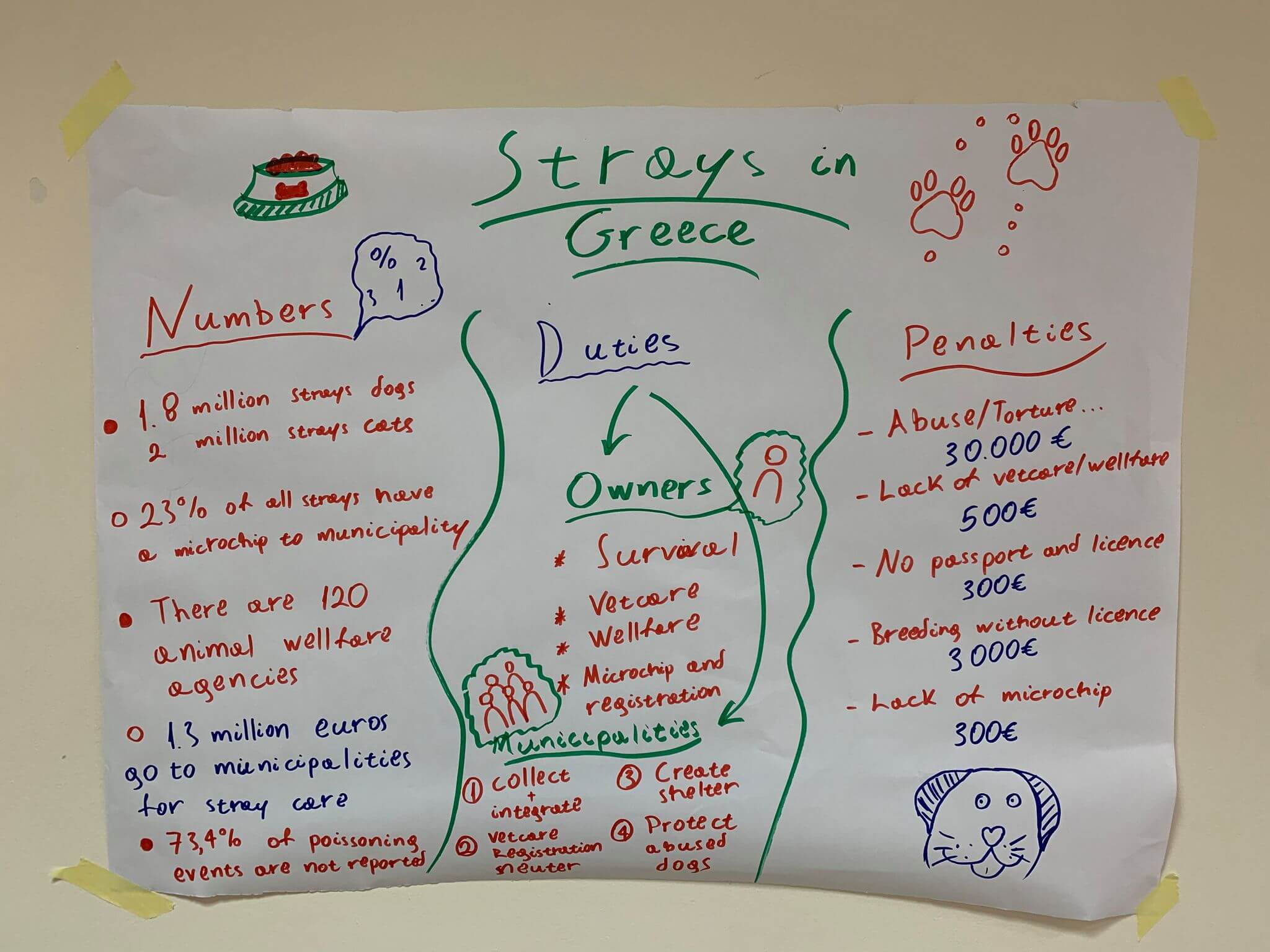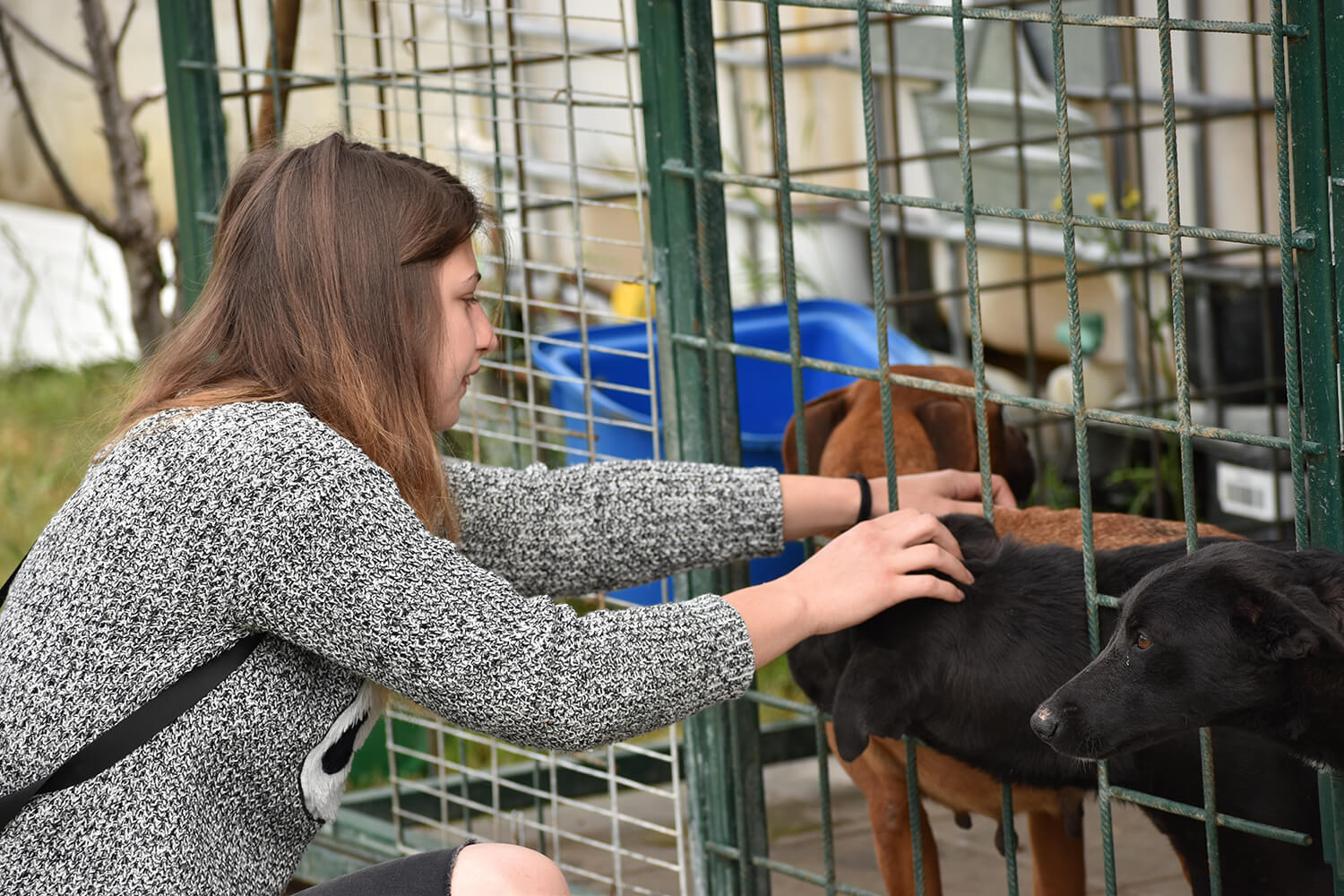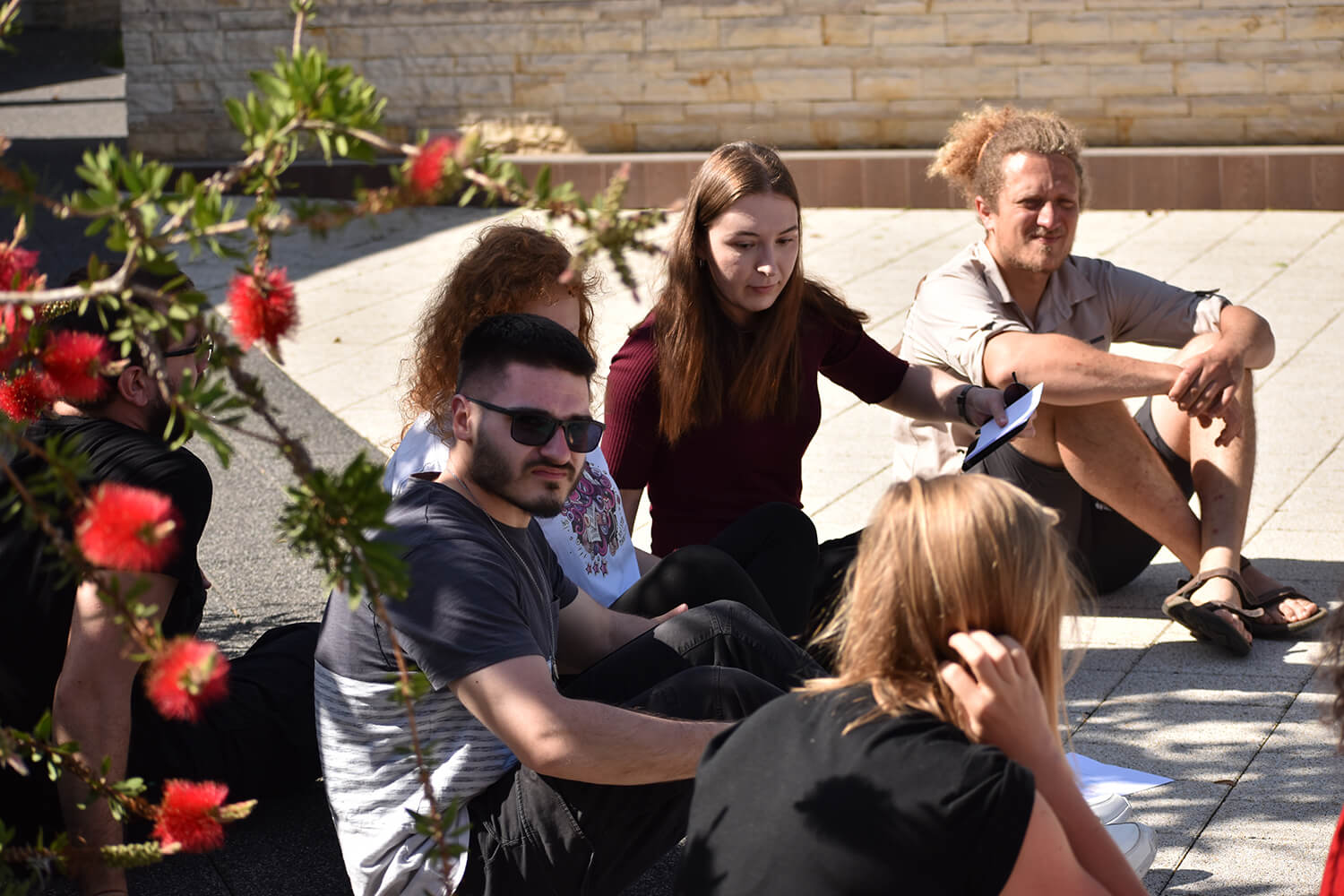Italian Company Besana Strengthening Position in Croatia
May the 17th, 2021 - The Italian company Besana, which is otherwise one of the strongest European companies in the production and processing of nuts and dried fruit, is working to further strengthen its position here in Croatia.
As Novac/Nikola Patkovic writes, the Italian company Besana is the third strongest European enterprise engaged in the production and processing of nuts and dried fruits. This year marks the 100th anniversary of its work and existence, and it has decided to further strengthen its position in the production of nuts in Croatia, where they have been present for 25 years, but also to help interested small and medium Croatian producers in the development of their own family farms.
The Italian company Besana currently has 50 subcontractors located in Croatia, from whom it buys about 100 tonnes of hazelnuts per year, but much more is being aimed for.
Giuseppe 'Pino' Calcagni is the owner of this large Italian family company which was founded back in 1921 on volcanic soil at the foot of Mount Vesuvius by his ancestors, and its name came from his mother's side. He explained that the Italian company Besana could easily support the work of 200 subcontractors across Croatia and purchase all of the crops from their orchards. In addition, they're ready to offer professional and advisory assistance to all those who are interested, as well as help in the procurement of planting material, machinery and equipment for tillage, as well as the maintenance of plantations.
''Hazelnuts produced in Croatia are of extra quality, because the climate here, as in practically all Mediterranean countries, is extremely suitable for planting and growing hazelnuts and other nuts, which is very well known to me, because we've been working in Croatia for 25 years now, primarily with subcontractors in the area of Virovitica and Orahovica. Currently, there are 50 of them, from whom we buy 100 tonnes of hazelnuts a year, but these numbers can be quadrupled without any problems and we're ready to help everyone who is interested,'' said Calcagni, who, with the help of expert consultant from Osijek, Mladen Ardalic, bought 50 hectares of orchards in Baranja on which the Italian company Besana raised its hazelnut plantations as a kind of demonstration area for all who want to get involved in cooperation with them.
''There are 6 hectares of old plantation and 44 hectares of new plantation from which the real harvest hasn't yet started,'' Ardalic explained, while Ivo Brzica, Besana's project manager in Croatia, explained how their plantations in Baranja were initially established.
''Our main varieties, Tonda Romana and Tonda Nocchione, are planted on them. In addition, the most modern underground irrigation system has been installed there, which is quite unusual for fruit growing in this country, but the vaporisation of the water is less and it's easier to work with machines above ground. We also have our own meteorological station and specialised orchard processing machines. In addition to advice and supervision of the entire process from design to planting and purchase, we also offer potential subcontractors the opportunity to purchase machines, equipment and technology, as well as our In Vitro seedlings of quality industrial varieties, which guarantee high yield and quality,'' explained Brzica, while Calcagni emphasised the great potential of planting hazelnuts and nuts in general.
''In the European Union, we have access to 500 million consumers of our products, but in the next 20 years, India and China will become very large, probably the largest, consumers, which means that there will be high demand for hazelnuts and nuts and therefore any investment made in production is very good because the prices will rise. The market will be secured and these are very good trends and a great opportunity for Croatian producers to join the chain,'' said the owner of the Italian company Besana, who, in cooperation with a Spanish partner called Importaco founded a group called AgriBioTech based in London.
In addition, Calcagni is also at the helm of the INC Foundation, whose members are made up of 1,000 nut producers from all around the world. Otherwise, the Italian company Besana annually buys 7,000 tonnes of hazelnuts, ie 44,000 tonnes of various nuts, and together with Importaco, 220,000 tonnes. They have 18 production plants across Europe and an assortment of 700 different products of which 140 million different packages are packaged annually.
For more, follow our business section.
Constitutional Complaint Being Prepared Against Croatian Civil Protection Directorate
May the 17th, 2021 - A constitutional complaint is being prepared against the Croatian Civil Protection Directorate by the country's event industry, claiming that while they are more than aware that measures must be taken to try to prevent infection, they believe their constitutional rights have been violated.
As Poslovni Dnevnik writes, members of the Croatian event industry have stated that while they are aware that the danger of infection exists and that they don't question the need for epidemiological measures, they believe that those measures must be accompanied by the rights guaranteed by the Croatian Constitution.
"The current epidemiological measures significantly encroach on our rights guaranteed by the Constitution," their statement said.
They claim that the Croatian Civil Protection Directorate, in its decisions and recommendations, violates the following norms prescribed by the Croatian Constitution:
1. Equality in treatment,
2. The rule of proportionality, ie the real danger of infection at public gatherings and the prescribed measures,
3. Entrepreneurial and market freedoms as the basis of economic structure and the guarantee of equal legal position on the market, and finally the right to work and earn an income as guaranteed by the Constitution.
"For all these reasons, and to try to prevent the collapse of our industry, we have no choice but to file a constitutional complaint against the decisions of the Croatian Civil Protection Directorate," they say.
They have also provided examples of just some of the illogical Croatian measures, citing several examples that they claim prove the measures are unconstitutional. Example number one is:
"According to the current epidemiological regulations, a group of catering and hospitality facilities on the Split waterfront (riva) can accommodate a total of over 500 people on their terraces, while at an organised and controlled event, such as a nautical fair, on the same waterfront on the other side with five to six times the space, we can only have up to 25 people. It's a fair of a specific character with non-mass visits, and the visitors walk around the ships and their equipment. We wonder where there is equality in treatment lies here, or where there is proportionality in the application of these restrictions.''
Example number two is:
“Currently, all shopping centres, unlike our industry, are allowed to operate, and according to the prescribed measures, they can accommodate from 1,000 to 5,045 people in their indoor spaces, while we can only accommodate 25 people at our events on the same square footage, which are also held outdoors.
Where's the proportionality if, according to all statistical analyses conducted so far, we know that this infection spreads in the open air at a percentage of 0.01 to 0.1 percent? Therefore, the epidemiological conditions for organising outdoor events should be much milder than those which govern people gathering indoors in shopping centres, and as you can see from the above examples, it turns out that they're hundreds of times stricter, and of course applying such rules and recommendations violates our entrepreneurial freedom in a disproportionate and unequal way.''
As a third example, they cite:
“In public transport (buses and trams), which cover a space of approximately 30 to 60 m2, 20 to 80 people can sit or stand in a confined space. A minimum of 20 students are sitting in classrooms no larger than 40m2 for 5 or more hours, again indoors, and we in the event industry and in the 50 times larger outdoor open space are still limited to 25 people per event. It isn't only an issue of constitutional rights, but also one which involved some common sense," they say.
As a final example, they state:
“Currently, in all premises of economic entities, offices, workshops, halls, etc., depending on the number of employees, up to several thousand people work indoors, while in our country there is a limit of 25 people at open/outdoor events.
In this case, our property rights, market and entrepreneurial freedom are placed in an unequal position. While some can work in fairly normal conditions, we're completely blocked, we're completely banned from working, because it's unprofitable to organise events for a mere 25 people.''
They claim that their rights guaranteed by the Croatian Constitution have been revoked in a "disproportionate, unequal and discriminatory manner without a valid explanation and adequate financial compensation for the damage they have suffered and continue to suffer".
They are demanding an urgent adjustment of the anti-epidemic measures set by the Croatian Civil Protection Directorate.
“We aren't even able to cover our minimum overhead costs, regardless of the fact that our industry is the most limited of all industries in terms of work and entrepreneurial activity. This situation is simply no longer sustainable. More and more successful companies from our industry are giving up on it all because there's no longer a basis for borrowing to maintain the status quo.
We demand an urgent adaptation of the measures to the real situation and the current situation, and respect for our constitutionally guaranteed rights, which have so far been grossly violated without any need. Let us work, let the music play,'' they conclude.
For more on the Croatian Civil Protection Directorate and coronavirus in Croatia, make sure to bookmark our dedicated COVID-19 section and choose your preferred language.
Youth for Stray Dogs Project in Zadar Ongoing from May 12 to 18
May 17, 2021 - 21 youths from Croatia, Greece, and Serbia are now in Zadar, Croatia for a week of helping stray dogs. Youth for Stray Dogs is a long-term project aiming to develop a solution for the rampant stray dog problem. Join them at their public event tomorrow, May 18, 2021, at the Zadar Sea Organ from 10:30 am onwards.

Youth for Stray Dogs on a day of helping Privlaka animal shelter | Photo credit: Udrugra Prizma
Udruga Prizma from Gračac in line with the Erasmus + program of the European Union gathered 21 youths from three European countries (Croatia, Greece, and Serbia) with the highest numbers of stray dog population to come up with a long-term solution to lessen, if not totally eradicate, the problem.
The group believes that human behaviour is the most important factor in determining the stray dogs’ population dynamics and that the best and the most effective way to help homeless animals is to raise awareness in the community by educating them on how to be responsible dog owners and to give knowledge and assistance to people who are interested in learning how to become one.
Udruga Prizma said that the main objectives of this project are to promote responsible ownership through the encouragement of communities about greater dog responsibility for future and current owners, to raise awareness for animal rights and adoptions, to increase human’s positive attitude toward all sentient beings and to entice the youth in actively helping the community through practical activities.
To do that, Youth for Stray Dogs will conduct group reflections and discussions about current animal rights, visit dog shelters, conduct an interview with a dog trainer and organise local activities to engage the community in increasing empathy for all animals.
Photo credit: Luana Matošević
Below is the itinerary for Youth for Stray Dogs provided by Luana Matošević, one of the project coordinators:
May 15, 2021 (Saturday) - visit the Sklonište za źivotinje Privlaka (animal shelter) to help and take the dogs out for a walk
May 16, 2021 (Sunday) - atelier workshop to create beds for dogs by reusing abandoned tires they have recently collected from the Musapstan forest
May 17, 2021 (Monday) - a symposium about dog behaviour and animal first-aid to be conducted by a veterinary student from Greece
May 18, 2021 - CULMINATION DAY: Youth for Stray Dogs will hold a public event at Zadar sea organ from 10:30am to promote the project. They will be giving out informative brochures about everything you need to know to lessen the existing stray problem, and raise funds and food to be donated to Privlaka animal shelter.

Photo credit: Luana Matošević
This is the first part of the youth exchange program. The second part of the project will be taking place in Greece, in the city of Lamia, in September this year should the epidemiological situation allow. The first part conducted in Zadar, Croatia focuses on the animals that stay in local shelters; however, in Greece - where there is a much larger population of stray animals - the focus would be to build food and water stations and to settle agreements with the local community to improve the situation.
To know more about Udruga Prizma and their ongoing and future projects and events, CLICK HERE.
For more news about events in Croatia, follow TCN's dedicated page.
For more news about Croatia, CLICK HERE.
Rijeka: SDP-led Coalition Wins 11 Seats in City Council - Exit Polls
ZAGREB, 16 May, 2021 - The coalition led by the Social Democratic Party (SDP) won 11 of 31 seats in the Rijeka City Council, or 29.40% of the vote, in local elections on Sunday, exit polls showed.
The Croatian Democratic Union (HDZ) received 16.76% (6 seats), followed by the Independent Slate of Davor Štimac on 10.98% (4 seats), the Bridge party on 10.002% (3 seats), the We Can!-New Left coalition on 8.001% (3 seats), the PGS-Labour coalition on 7.95% (2 seats) and the Youth Action-Kvarner Union-Alternativa coalition on 6.61% (2 seats).
For more news about politics in Croatia, follow TCN's dedicated page.
Osijek: HDZ Wins 15 Seats in 31-seat Council - Exit Polls
ZAGREB, 16 May 2021 - According to the latest exit polls, the Croatian Democratic Union (HDZ) slate won 42.49% of the vote in Osijek in Sunday's local election, that is 15 seats in the 31-seat council of that biggest eastern Croatian city.
The coalition of the Homeland Movement (DP) and the Bridge party follows with 18.76% of the vote and six seats in the council.
The Social Democratic Party (SDP) ranked third with 15.40% of the vote, which means it could have five seats in the local legislature.
The Snaga SiB party won 6.72% of the vote, thus securing two seats. The We Can party can also count on two councilors, winning 6.04% of the vote.
The HNS, HSS and Reformists coalition would have one seat after this coalition won 5.24% of the vote, according to the exit polls.
For more news about politics in Croatia, follow TCN's dedicated page.
Split: HDZ and Centre Each Win Eight Seats in City Council - Exit Polls
ZAGREB, 16 May 2021 - The Croatian Democratic Union (HDZ) won eight seats or 23.53% of votes in Sunday's local elections for the 31-seat Split City Council, while the Centre party also won eight seats, trailing behind on 22.23%, exit polls showed.
The Croatian Civic Party received 13.39% (5 seats), followed by the Social Democratic Party (SDP) on 8.86% (3 seats), the Green-Left Coalition on 8.84% (3 seats), Bridge on 8.12% (3 seats), and the independent list of Tomislav Mamić on 5.05% (1 seat).
For more news about politics in Croatia, follow TCN's dedicated page.
Kekin: People Have Realised it's Time for Change
ZAGREB, 16 May 2021 - New Left president Ivana Kekin said on Sunday that the first exit polls in Zagreb, according to which Tomislav Tomašević (We Can!, Zagreb Is Ours!) has won 48.6% of the vote for mayor, showed that people had realised it was time for a change.
"The result is maybe even better than all the pre-election polls showed. We are very glad that citizens have obviously realised it's time for a change and that they have realised who can deliver that change," Kekin told Hina.
According to the first exit polls in Zagreb, Tomašević has won 48.6% of the vote for mayor and the coalition of We Can!, Zagreb Is Ours!, New Left and Orah 45.96% for the City Assembly.
Asked if she expected Tomašević to win in the 30 May mayoral runoff, Kekin said it was difficult to say given that these were exit poll results. "The numbers can go a little up or a little down now. It would be great if they went up a little, so that we can save money and time and get to work immediately on Monday."
For more news about politics in Croatia, follow TCN's dedicated page.
Milanović Supports EU Integration of Western Balkans as Soon as Possible
ZAGREB, 16 May, 2021 - Zagreb and Ljubljana are here to help their Western Balkan friends join the European Union because that is in everyone's interest, just as it is presumably in Slovenia's interest that Croatia enters the Schengen zone, Croatian President Zoran Milanović said in the Slovenian lakeside resort of Bled on Sunday.
Milanović and his Slovenian host Borut Pahor held a working meeting ahead of the annual Brdo-Brijuni Process summit on Monday. The two presidents are the co-chairs of this initiative.
Over the last ten years, the Brdo-Brijuni Process has shown that "it makes perfect sense," Milanović told the press before meeting Pahor, according to a press release from the Croatian president's office.
"We are here to encourage and help our friends and neighbours from the Western Balkans, basically the countries of the former Yugoslavia plus Albania, to join the European Union as soon and as simply as possible because that is in everyone's interest," the Croatian president said.
Milanović said he presumed it was also in Slovenia's interest that Croatia should join the Schengen zone as soon as possible.
"All this is part of a broader story in which we will do all we can, notably our governments, but we too, so that our neighbours become, as soon as possible, part of the community which we belong to," Milanović said. "After all, Europe is one and should be one because whenever it was divided in the past it was not good," he added.
Milanović called for cooperation despite differences.
"We do not have the same views on all issues, but I believe that our views are compatible and can produce a result," the Croatian president said. He said he was optimistic and expected a good meeting on Monday.
The Brdo-Brijuni Process was launched by Croatia and Slovenia in 2013 to address open issues through regional cooperation, stabilise the situation in southeast Europe and create conditions for EU enlargement.
For more news about politics in Croatia, follow TCN's dedicated page.
For more news about Croatia, CLICK HERE.
Ombudswoman: Significant Presence of Homophobia, Biphobia and Transphobia in Croatia
ZAGREB, 16 May 2021 - Gender Equality Ombudswoman Višnja Ljubičić said on Sunday that different manifestations of intolerance towards sexual and gender minorities registered in 2020 indicated a significant presence of homophobia, biphobia, and transphobia in the Croatian society.
On the occasion of the International Day against Homophobia, Transphobia and Biphobia, observed on 17 May with the aim of raising awareness of the need to fight discrimination and hatred against LGBTIQ persons, Ljubičić said that according to data from the Ministry of the Interior, seven criminal offences committed on grounds of sexual orientation were recorded in 2020. Those were mainly criminal offences of public incitement to violence and hatred and criminal offences of inflicting bodily harm.
Ljubičić also warned that a recently published study by the European Union Agency for Fundamental Rights entitled "A long way to go for LGBTI equality" showed that discrimination against sexual and gender minorities continued to be a pronounced social problem.
Also, according to the study results, 47% of respondents in Croatia almost never declare their same-sex orientation openly, and of the countries covered by the study, Croatia has the highest percentage of students who hide the fact that they belong to a sexual or gender minority (51%), Ljubičić said.
The International Day against Homophobia, Transphobia and Biphobia is observed on 17 May because on that day in 1990, homosexuality was removed from the International Classification of Diseases of the World Health Organization.
In Croatia, the day has been observed since 2011 by a decision of the Croatian Parliament as part of the National Gender Equality Policy.
For more news about lifestyle in Croatia, follow TCN's dedicated page.
Exit Polls for Local Elections in 4 Biggest Cities: Mayoral Runoffs Likely on 30 May
ZAGREB, 16 May, 2021 - Croatia held local elections on Sunday for 425 municipal and 127 city councils, 20 county assemblies and the Zagreb City Assembly, and exit polls released after the closing of polling stations at 7 pm show that the four largest cities will have a mayoral runoff on 30 May.
ZAGREB
In the capital, the mayoral candidate of the We Can! and Zagreb is Ours political groups, Tomislav Tomašević, mustered 48.6% of the vote, with the runner-up Jelena Pavičević Vukičević of the Labour and Solidarity Party winning 11.5%.
SPLIT
In this southern coastal city, Ivica Puljak of the Centre party won 27.4% ahead of Vice Mihanović of the HDZ with 23.4%.
RIJEKA
In this northern Adriatic port city, exit polls put the SDP's Marko Filipović in the lead with 29.9%, with independent candidate Davor Štimac trailing at 16.3%.
OSIJEK
In the largest eastern city, the HDZ's Ivan Radić won the first round of the vote, capturing 41.4%, and will face Berislav Mlinarević, supported by the Homeland Movement ad the Bridge, who took 19.2. %, in the 30 May runoff.
The exit poll was conducted by the Ipsos Puls agency.
For more news about politics in Croatia, follow TCN's dedicated page.
For more news about Croatia, CLICK HERE.





